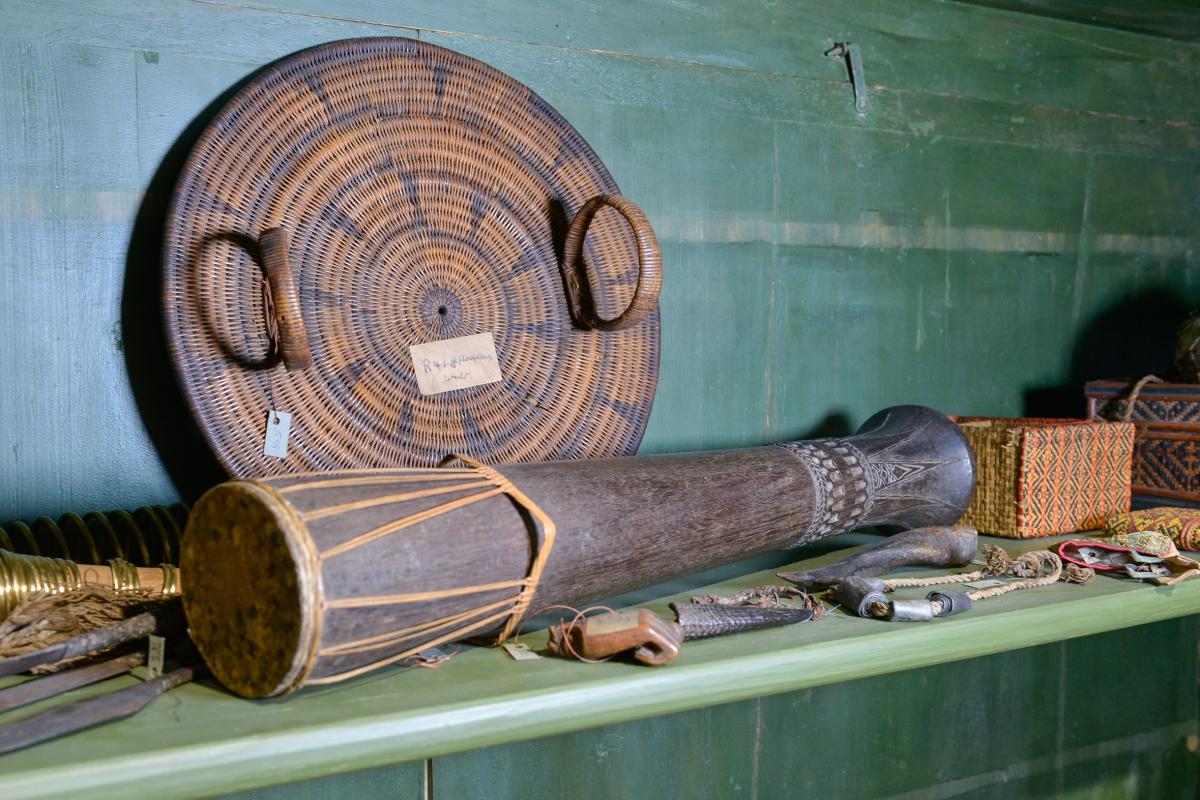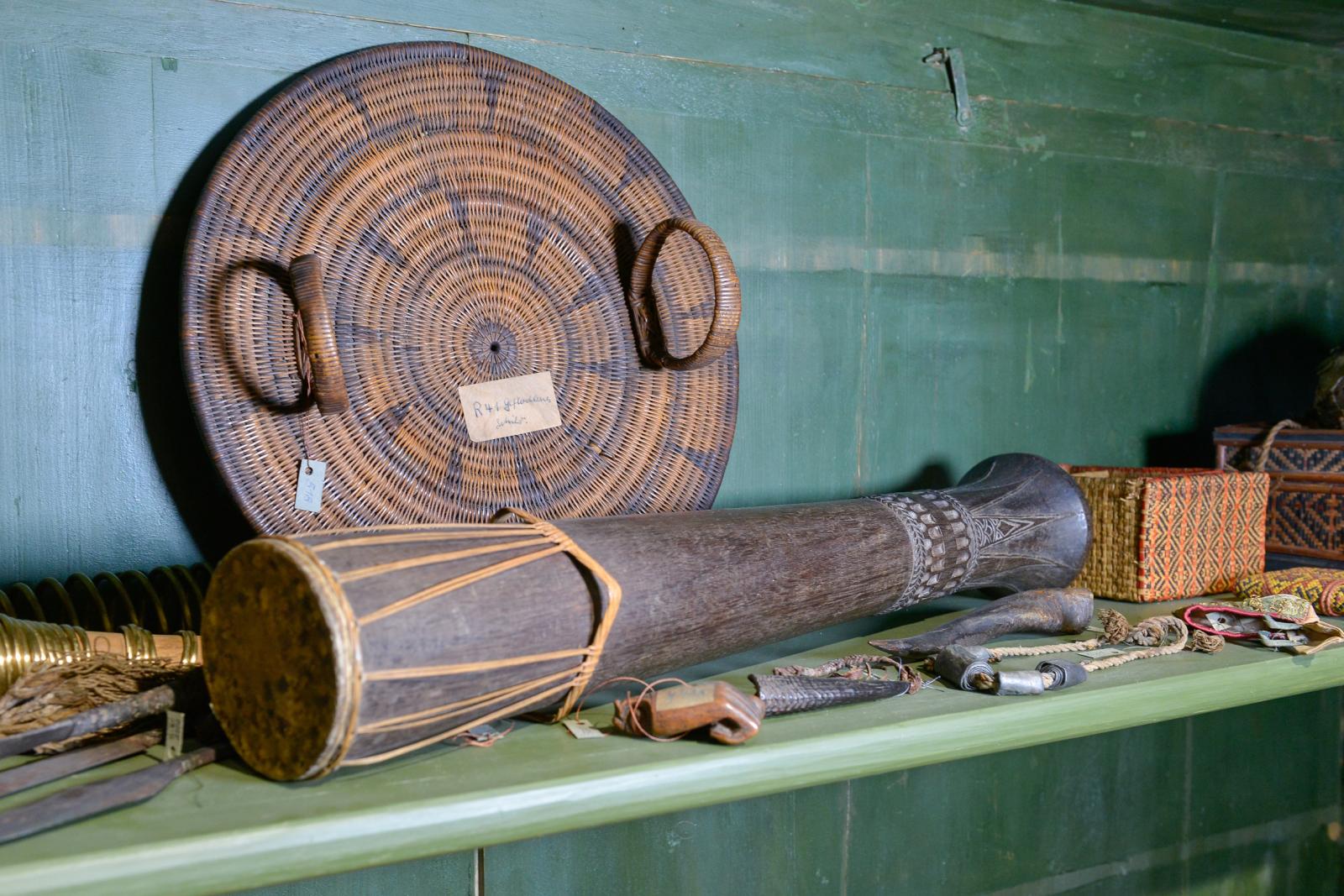A three-year project is to be funded by the German Lost Art Foundation to carry out more in-depth research into 110 objects held in the Cabinet of Artefacts and Natural Curiosities run by the Francke Foundations in Halle (Saale). The artefacts originate from Borneo and were sent to Halle in the 1840s to be added to the collection held in the Historical Orphanage. They are still on display there today in a specially made collection cabinet and on the walls of the facility.
Established in the years 1736-41, the Cabinet of Artefacts and Natural Curiosities is regarded as the only fully preserved cabinet of curiosities of bourgeois origin from the early modern period. The naturalia and artefacts can still be viewed today in the original collection cabinets.
In the 18th century, the collection comprised almost 5,000 items that came to Halle through the worldwide Pietist network. One important source was the first Protestant mission (from 1706 onwards) in Tharangambadi in southern India. Building on previous collecting activities, Hermann Agathon Niemeyer (1802-1851) sent Heinrich Julius Berger (1800-1845) and Johann Michael Carl Hupe (1818-1861) as missionaries to Borneo on behalf of the Rhenish Missionary Society. Like the missionaries in India before them, they were tasked with sending objects to Halle to be kept in the Cabinet of Artefacts and Curiosities.
The research project is to focus on analysing the provenance of these objects and look at how they were acquired, with the aim of determining their original purpose in the society of origin and assessing the available information. Another focus will be on the people in Borneo from whom the artefacts originated. “All in all, the project will seek to make an in-depth contribution to exploring the historical collection practices of German missionaries under colonial rule, thereby also contributing to the debate about the links between knowledge, missionary activity, museums and colonialism,” says project leader Prof. Dr. Holger Zaunstöck.
Contact with the Friends of Sarawak Museum in Kuching (Malaysia) was already established when submission of the project proposal was being prepared. Founded at the end of the 19th century, this institution is considered to be the oldest museum in Southeast Asia. The project aims to create a digital exhibition in which the research findings will be clearly presented in multilingual and freely accessible form.
For full details of the project, see www.francke-halle.de/forschung
SAVE THE DATE: „Die aus Borneo stammenden Objekte in der Kunst- und Naturalienkammer der Franckeschen Stiftungen“
Interdisziplinärer Auftaktworkshop zu dem durch das Deutsche Zentrum Kulturgutverluste geförderten Forschungsprojekt
1. Februar 2024, Franckesche Stiftungen



